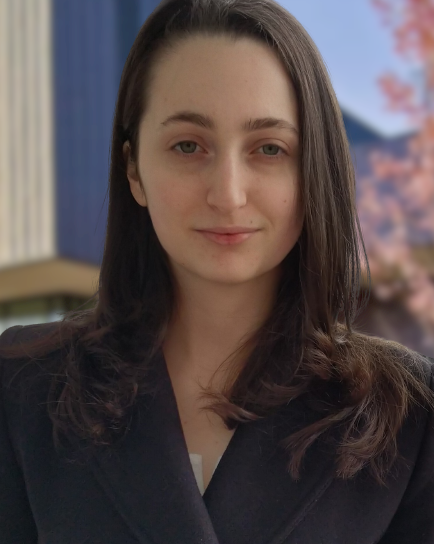
Allegheny College senior Teona Bagashvili secured a competitive spot in the Massachusetts Institute of Technology (MIT) 2021 Summer Research Program, where she contributed to groundbreaking artificial intelligence (AI) research.
Majoring in computer science and minoring in dance and movement studies, Bagashvili says that Allegheny College gave her the foundation to work alongside brilliant students from around the nation and MIT faculty. She credits her experience at Allegheny with developing her research skills. After graduation, she will take those skills to Boston University to pursue a Ph.D. in computer science, focusing on computer vision and natural language processing.

Teona Bagashvili
Under Associate Professor of Computer Science Janyl Jumadinova’s guidance through the Allegheny Cupper Scholars Program, Bagashvili had the opportunity to study automated text summarization and key-phrase extraction.
“I am very proud of Teona’s academic success, and I feel very fortunate to have gotten to know her as her academic advisor, her teacher, work supervisor, and a research collaborator over the last three years,” Jumadinova says. “Teona found her place and her community at Allegheny and dove right into the learning environment, taking advantage of the many opportunities that we offer.”
Bagashvili was also selected as an Allegheny Ethics Technical Leader, where she researched biases in automated face recognition with supervised machine learning.
“This project allowed me to create an educational tool that is now incorporated into the AI course at Allegheny,” Bagashvili says. “This experience helped me improve my data analysis skills by processing thousands of images and encouraged me to always reflect on ethical issues in my future research.”
In collaboration with Associate Professor of Computer Science Gregory Kapfhammer, Bagashvili explored the automated classification of the Git commit messages that software engineers write when they change a software system. Since the project used the Python programming language and several natural language processing frameworks, it helped prepare Bagashvili for her research at MIT.
Kapfhammer notes that Bagashvili is a skilled software engineer who excels at creating helpful software tools.
During Bagashvili’s summer research internship at MIT, she conducted one of many experiments in the MIT Computer Science and Artificial Intelligence Laboratory (CSAIL). Her experiment particularly involved the MILAN (mutual-information-guided linguistic annotation of neurons) method to audit neural networks trained on the images of blurred human faces.
Bagashvili’s research found that blurring faces reduces face-sensitive neurons but doesn’t eliminate them. The study also showed that some neurons were sensitive to features related to gender and ethnicity.
A corresponding research paper on MILAN, which encompasses multiple experiments that include Bagashvili’s work, was accepted by the 2022 International Conference on Learning Representations that showcase leading-edge AI research. Bagashvili was the only undergraduate contributor to the paper related to her experiment.
“These experiences have helped me develop skills like asking research questions, conducting experiments, and interpreting results,” Bagashvili says.


